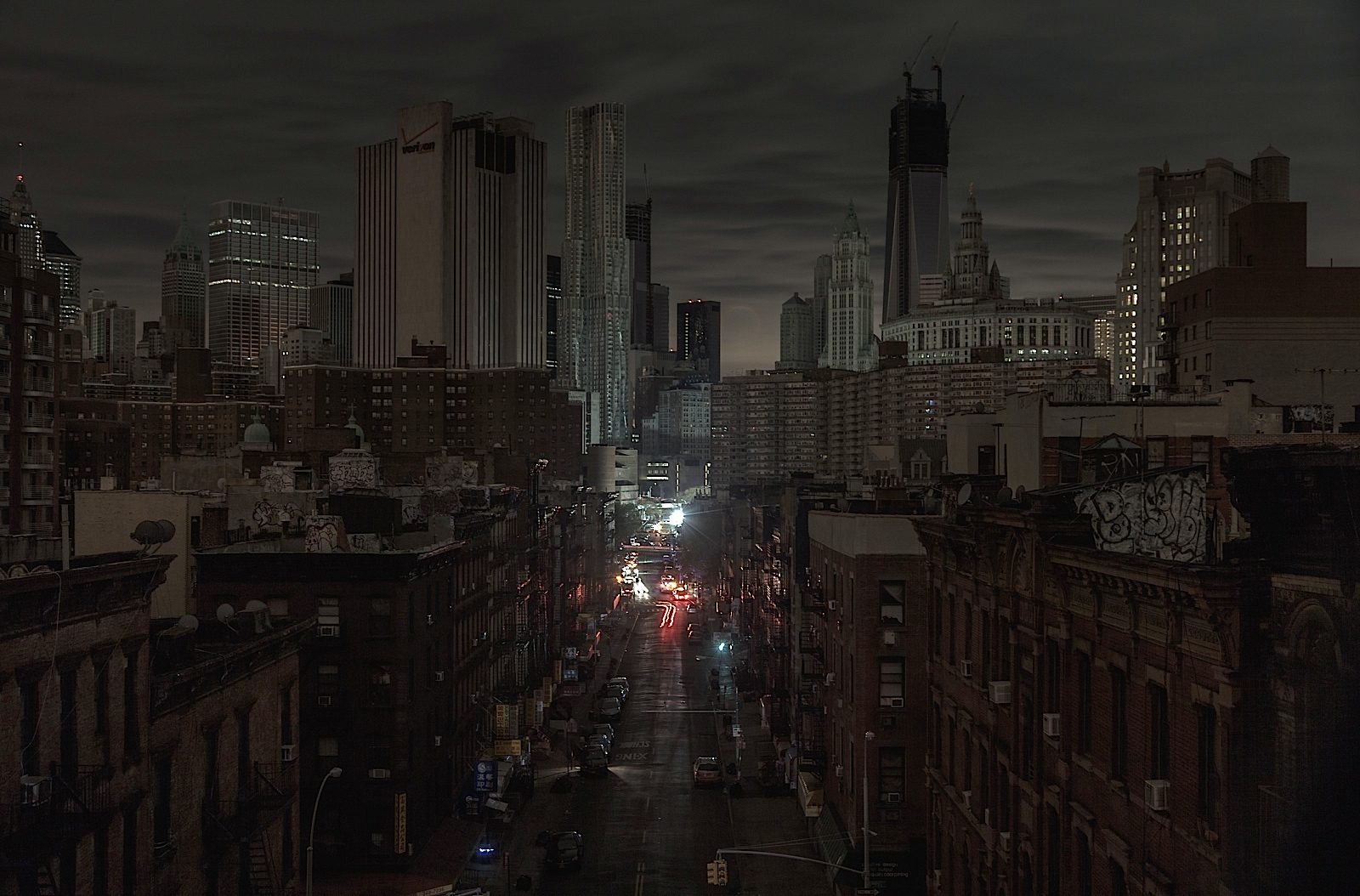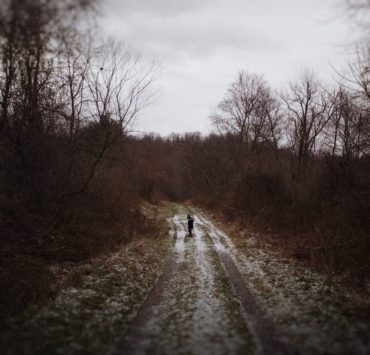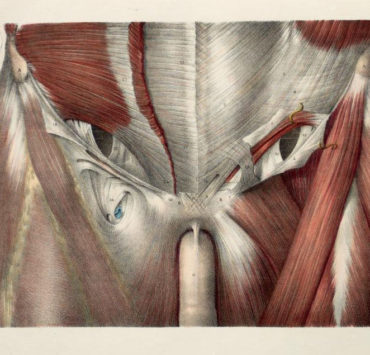
We climb toward the rumored grave
of an Native American healer, the earth
a vertigo of blackness and exposed
root beneath our palms, pressing up
through the waves of molten leaves,
toward the bluff where our children,
having for the past hour pretended
not to hear our demands for them
to come down, are now balancing
their sun-licked, baby-fat-all-but-gone
bodies, on a thin shelf of rock. “Look,
it’s a deer! A deer in a wolf ’s face!”
their cries tumble down, snagging
like runaway rags on the branches;
they look like Brutus and Cassius
debating the fate and meaning of
a red stain the size of a man etched
into granite, commanding the speech
of minerals – they’ve found a myth
worth more than their mothers’ fear.
The wind makes a bear of me, gristling
my chest and thighs as I crawl, gravity
inhaling me like an enormous throat,
over the deadness of trees and thorned
bushes, knuckles bursting like berries,
thoughts detritus around a New York
Post article I read about a woman, who
weeks ago, her brain sweaty with prayer,
climbed the rope of her body, her black
body, up the steepest mountain in America,
which rose between the door of her car
where her children rocked each other
in the arms of the storm, and the door
of the house she knocked and knocked,
until her knuckles burst into mouths,
her body a black tongue, a root burning
against which the family in the living room
drily surveyed their possessions:
fine china, paintings collected over
the years, utensils gleaming in candlelight,
the life-size television – their window
into loss and destruction – which
is silent now, their sleeping Noah.
The door did not open. The animals in
the house survived, while two baby boys
washed away, their screams became
the moulted skin of water as it bucked,
roiled against its own vanishing empire,
claiming for days a solid mass, blitzkrieg
of porches and tire swings, of libraries,
the vowels of a child’s eyes looking up
at the body that broke open for him
and keeps breaking, like a faulty dam,
even after water returns to water, lifting
like souls in sunlight, to form the clouds
that now drift above us, waiting their turn
to kiss the mouth of a forgotten grave,
the red of a mother’s heart. I hold my son
to me, I breathe him, and try to witness
the miracle of leaves still clinging
to branches, scrawling their petitions
on the November breeze – even as we
stare at our knuckles, the ripe strength
of them, on this precipice we have been
led to in the wake of the flood, asking
the gods, which do we raise them to be:
deer or wolf? The dead give nothing away.
Image Credits: Several Second

Cynthia Dewi Oka is a poet and author of Nomad of Salt and Hard Water (Thread Makes Blanket, 2016). A Pushcart Prize Nominee, her poems have appeared online and in print, including in Guernica, Black Renaissance Noire, Painted Bride Quarterly, Dusie, The Wide Shore, The Collapsar, Apogee, Kweli, As Us Journal, Obsidian, and Terrain.org. She is also a contributor the anthologies Read Women (Locked Horn Press, 2014), Dismantle (Thread Makes Blanket, 2014), and Revolutionary Mothering: Love on the Frontlines (PM Press, 2016). Cynthia has been awarded the Fifth Wednesday Journal Editor’s Prize in Poetry, scholarships from the Voices of Our Nations (VONA) Writing Workshop and Vermont Studio Center, and the Art and Change Grant from Leeway Foundation. An immigrant from Bali, Indonesia, she is now based in South Jersey/Philly. Her second poetry collection is forthcoming in 2017 from Northwestern University Press.






